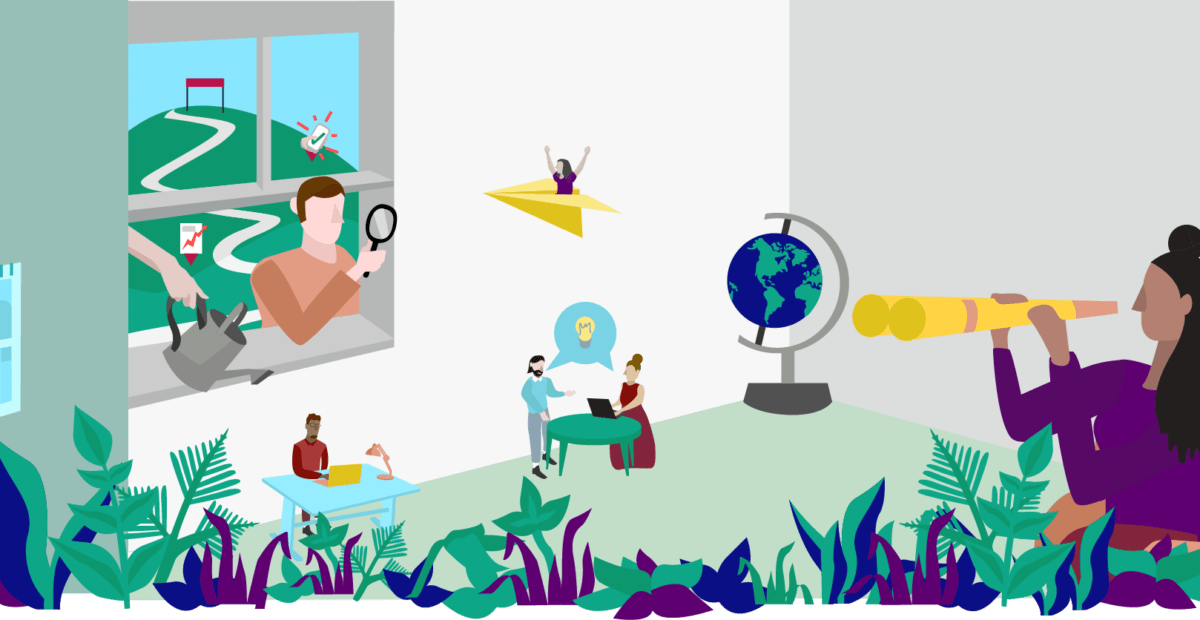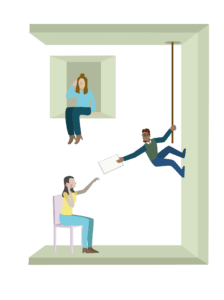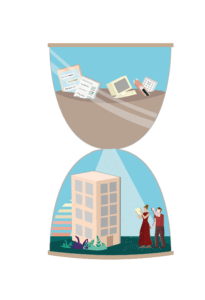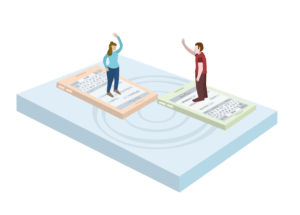Tips for Working from home with Autism, ADHD or Dyslexia during COVID

1. Choose an absolute time to finish each day.
Instead of relying on coworkers, whose packing up and leaving the office reminds you to do the same, set the alarm at the end of the day to indicate the typical workday is coming to an end. Most neurodivergent workers tend to overwork to compensate for a sometimes slower approach to specific tasks. Yet, we all know this is not the healthiest thing to do. You do not have to stop exactly when the alarm rings , but knowing the workday is technically overis essential. A set time can help you start the process of saving the work and calling it quits for the evening.
2. Have your meals prepared in advanced.
When you are in the home, it can be tempting to spend time preparing an excellent breakfast and lunch for yourself, chopping and cooking included. Do not use precious minutes making your food the day of work — cook it the night before.
Preparing food ahead of time ensures you can use your meal times just to eat, work times are then just for work.
BBC Good Food is a good starting point for easy to make recipes
3. Speak with the housemates/ family

Remember:You are working from home, not the moon. Interacting with other people during the day is allowed, even
if they are not coworkers. It is a good idea to see another face during the day especially if most of your work is communicating via the computer.
4. Remember to take breaks
It can be so easy to avoid breaks altogether so we do not become distracted.. Do not let the guilt of working in the building you sleep in, prevent you from taking five to relax. Rather than just opening YouTube and watching some comfort clips, use the breaks to get away from the desk. Go for a walk outside or spend time with others who might also be in the house.
We use an app called Break Timer that reminds us to break every hour.
5. Transparency is vital with the team when working from home.
Of course, you might be working from home but still have “company.” Make sure any roommates, siblings, parents, spouses, and cats (well, maybe not cats) respect your space during work hours. Just because you are working from home does not mean you are home.
 6. Use the washing machine as a timer for breaks.
6. Use the washing machine as a timer for breaks.
Timekeeping for us dyslexics and dyspraxics is not the most natural thing in the world, thankfully there are several ways to measure time (apart from a clock). You might have heard listening to just two or three songs in the shower can help you save water. Moreover, it is true; hearing a few of the favourite songs start and end, one after another, can remind you how long you have been in the bathroom and shorten the wash time.
Why bring this up? Because the same general principle can help you stay on task when working from home. However, instead of three songs off the music playlist, run the washing instead.
7. Music, music, music!
As many of us with neurodiversity are creative music is naturally the soundtrack to the career (cheesy, but admit it, it is true). Moreover, at work, the best playlists are diverse playlists, you can listen to music that matches the energy of the project you are working on. Video game soundtracks are excellent at this. In the game itself, this lyric-free music helps you focus; it only makes sense that it would help you focus on the work as well.
At Exceptional Individuals, we have a team playlist that we can all add to on Spotify. A great way to feel connected (if you can stand your colleagues’ music taste that is)
8. Stay connected with technology.
Working from home might help those with autism focus on their work in the short term, but it can also make you feel cut off from the more extensive operation happening in the team. Instant messaging and videoconferencing tools can make it easy to check in with coworkers and remind you how the work is contributing to the big picture.
9. Know what to achieve in the day ahead of time.
Spending time figuring out what you will do, particularly with dyslexia, dyspraxia and ADHD can take away from actually doing those things. Plan Your task list but it is essential to let the agenda change if you need it to. However, it’s equally as important to commit to a schedule that outlines every assignment before you begin. Try preparing the calendar the day before, making it feel more official when you wake up the next day to get started on it.
To keep on track, our team uses Monday.com and Todoist (Free)
10. Leave calls/ video call for the afternoon.
With my dyspraxia and autism, I can feel socially tired in the morning, and I do not even want to hear my voice, let alone talk to others with it. It would help if you did not have to give yourself too much time to converse in the morning. Give yourself some extra time before working directly with others.
If you are struggling to come up with a reasonable work schedule for yourself as a neurodivergent person, start with the solitary tasks in the morning. Save phone calls, meetings, and other collaborative work for when you have officially “woken up.”
11. Know when you are most productive and work then.
With ADHD, you may feel that you sprint through your work from morning to evening, however eventually the motivation will naturally decrease and flow throughout the day. When you are working from home, however, it is all the more important to know when those ebbs and flows will take place and plan your schedule around it.
To capitalise on your most productive periods, save the more difficult tasks for when you know you will be in the right headspace for them. Use slower points of the day to knock out the more straightforward, logistical tasks that are also on the plate.
12. Push yourself to do more.
Projects always take longer than you initially think they will. For that reason, you will frequently get less done than you set out to do. So, just as you are encouraged to overestimate how much time you’ll spend doing one thing, you should also exceed how many things you’ll do during the day. Even if you come up short of the goal, you will still come out of that day with a solid list of tasks filed under ‘complete.’ Being dyslexic does not have to mean less productive, and this will prove it.
13. Turn off the social media.
Social media makes it easy for you to open and browse quickly whether you are neurodiverse or not. At work, though, this convenience can be detrimental to productivity.
To counteract the social networks’ ease of use during work hours, remove them from the browser shortcuts and, according to Fast Company, log out of every account. You might even consider working primarily in private or, if you are using Chrome, an “Incognito” browser window. Incognito ensures you stay signed out of all the accounts, and each web search you conduct does not autocomplete the word you’re typing. It is a guarantee that you will not tempt into taking too many social breaks during the day.
Learn how to use Incognito
14. Get out of the house (If you can)
Is the home office just not getting it done for you? Take working from home a step further and get out of the house. Being dyslexic, dyspraxic, autistic, or with ADHD can be isolating in regular times so particularly when working remotely try to get out, go to coffee shops, libraries, public lounges, and similar Wi-Fi-enabled spaces can help you simulate the energy of an office. Stay productive even when you do not sit in an official workplace.
15. Have a different workspace.
With conditions like ADHD, having a change of scenery can be really beneficial. Just because you are not working at an office does not mean you cannot, well, have an office. Rather than cooping yourself up in your room or on the couch – spaces that are associated with leisure time – dedicate a place or surfaces in the home to work.



